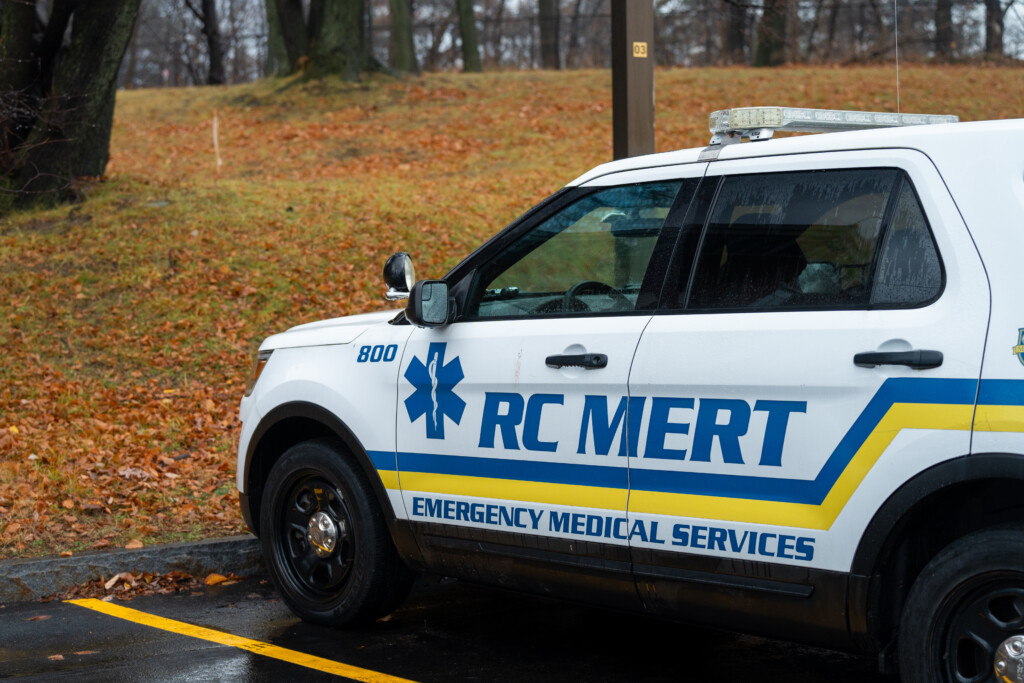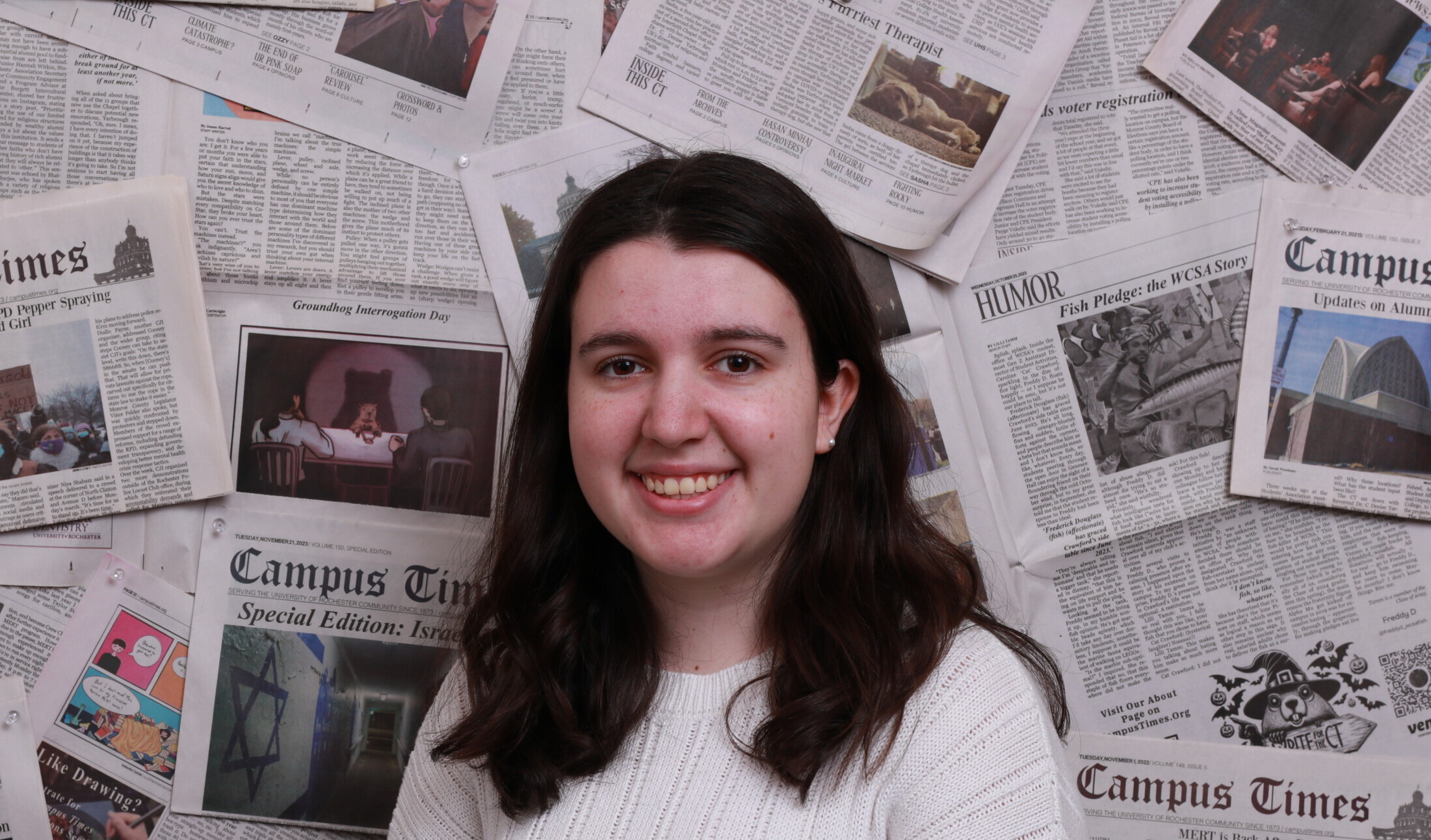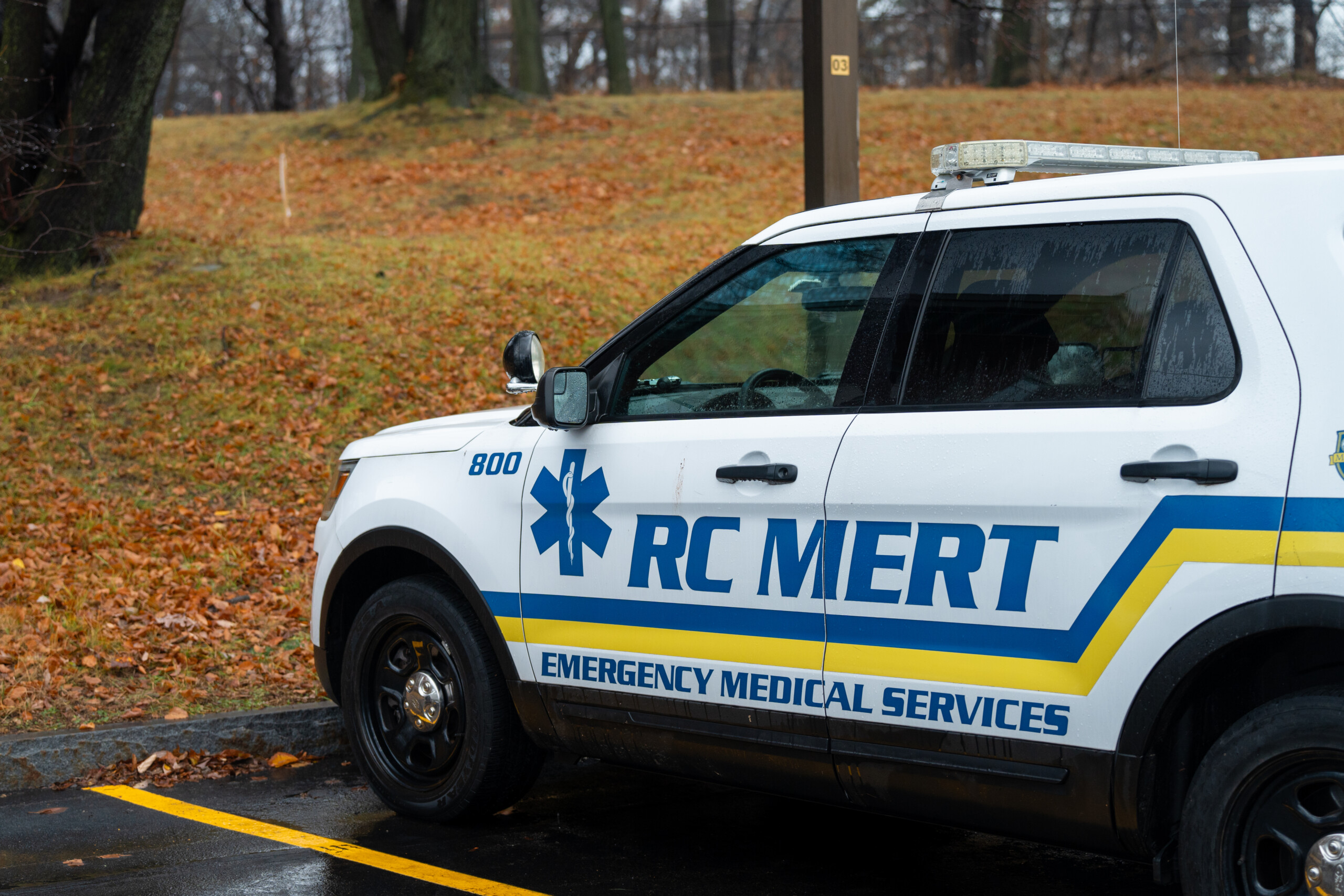The River Campus Medical Emergency Response Team (RC MERT) has been back in business since 2022 following their year-long pause, but cannot operate to their fullest extent while students remain unaware of their existence.
MERT was called by students only a few times in 2022 — a drastic decline in use in comparison to responding to 300 calls per year pre-pause. This year, they’re still operating at a fraction of their original engagement.
“It’s still small,” said MERT Director of Operations and senior Caroline Murnane. “We’ve only had like 20-something calls, but from where we were to where we are now is definitely building.”
Founded in 1972, MERT has served the campus community by providing first aid to students in need since its inception.
The University put into place a medical amnesty policy in 2012, which protects students who actively seek medical assistance from RC MERT in cases regarding drugs or alcohol. The amnesty policy allows students to receive care without worrying about disciplinary actions.
MERT also works with the Rochester community to promote health education both on and off campus, as well as co-sponsors other health related events.
In order for MERT to be fully effective in the UR community, people need to know about its existence. Their goal, Assistant Director of Operations and junior Ahani Murthy said, is to “provide care to our campus community, and be a friendly face in a time of need for students.”
In order to do that, MERT trainees take part in an on-campus EMT training program to learn how to better support students suffering a medical emergency.
“So far, the training has been stuff that would indicate a level of comfort just in taking vitals and doing a lot of the basics of care under someone more experienced,” shared first-year trainee Sophie Black.
After completing the training course, students become Medic Assistants and join response crews to calls in order to provide support to more experienced members. A Medic Assistant, along with two higher-leveled students in the program — a Crew Chief Trainee and a Crew Chief — make up a full crew.
In order to level up in the program, Crew Chief Trainees are required to have completed their EMT certification, and become Crew Chiefs after further experience in the MERT program. However, due to the pause, MERT lacks enough experienced members to make up enough full crews to run every night.
“We’re in service right now consistently Monday through Thursday, 8 p.m. to 7 a.m.,” Murnane said. “Historically, MERT’s been a seven-days-a-week kind of thing, so that’s what we’re working towards.”
As new members gain more experience, MERT will be able to return to its original model and be able to help more students. MERT is also working to make sure RAs know about their organization and how to contact them.
“If you’re an RA, but you joined and didn’t know what MERT was when you were a freshman, and now you’re an RA, you won’t be able to share with your residents,” Murnane explained. “This is a resource that’s available if you need it.”
By attacking the problem from both ends, MERT’s leadership feels that they have made headways in fixing it.
“I think people are starting to know about us more, I think definitely the rebuilding is working,” Murthy said.
Once UR students are informed about MERT’s capabilities, they will be able to take advantage of everything the service can provide. Every medic has EMT training, and can help students to make decisions on how to handle a medical emergency.
“Just having that extra person there can really help,” Murthy said. “Don’t be afraid to call.”



